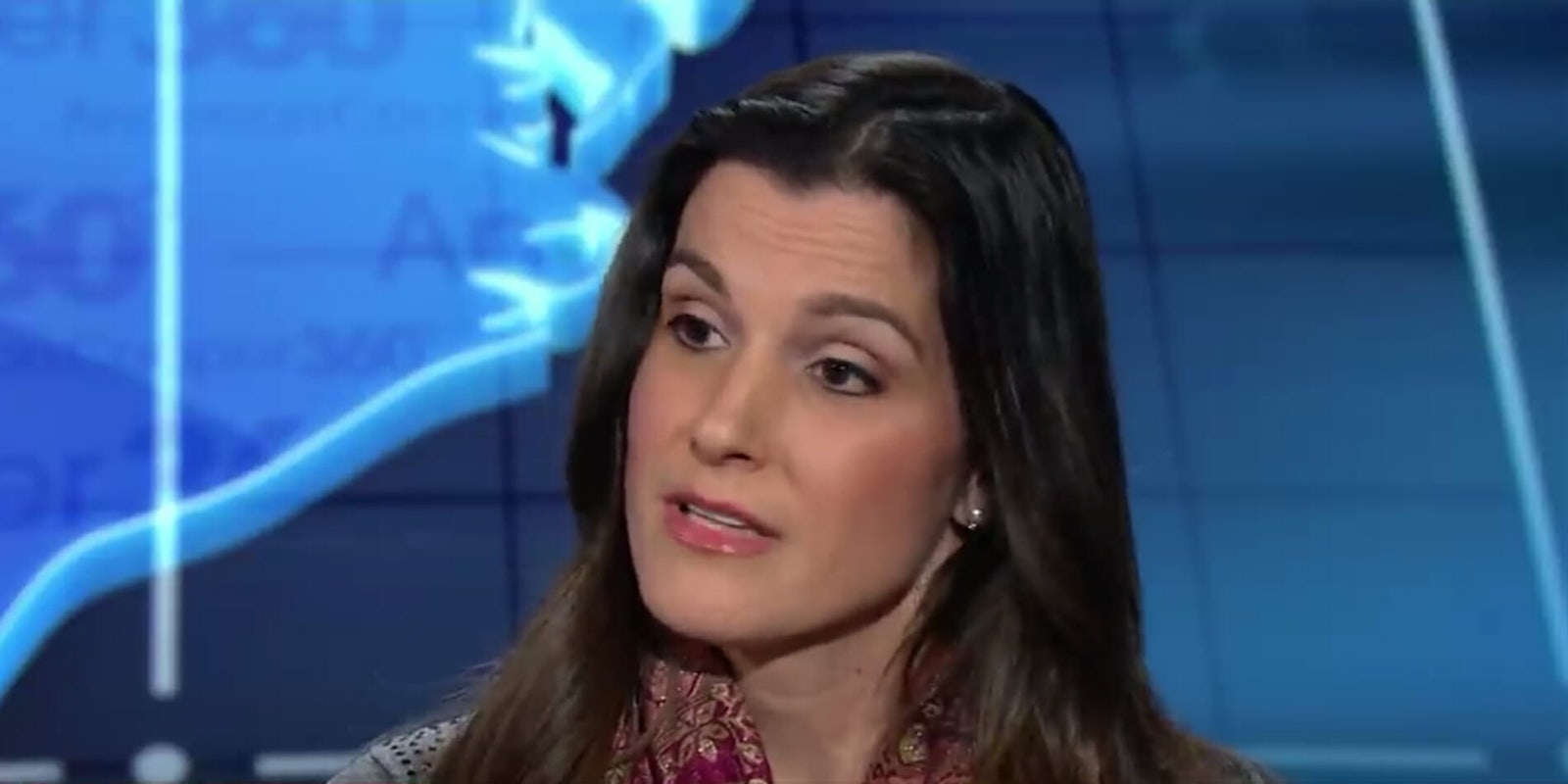Last week, former White House staff secretary Rob Porter resigned from his position after domestic abuse accusations emerged against him from two former wives. Now, Porter’s second wife Jennie Willoughby has published a personal essay with Time Magazine criticizing President Donald Trump for defending Porter and urging society to believe abuse victims.
Willoughby’s essay references a tweet from the president over the weekend, which was published after White House speechwriter David Sorensen also resigned amid domestic violence allegations. In his tweet, Trump implicitly defended both staffers, calling domestic abuse claims “mere allegation” and arguing the “falsely accused” can suffer intense consequences. For Willoughby, President Trump’s behavior suggests a larger issue in a society where people cover up or ignore abusive behavior.
“Society as a whole has a fear of addressing our worst secrets. (Just ask any African-American citizen),” Willoughby writes in her essay. “It’s as if we have a societal blind spot that creates an obstacle to understanding. Society as a whole doesn’t acknowledge the reality of abuse.”
Peoples lives are being shattered and destroyed by a mere allegation. Some are true and some are false. Some are old and some are new. There is no recovery for someone falsely accused – life and career are gone. Is there no such thing any longer as Due Process?
— Donald J. Trump (@realDonaldTrump) February 10, 2018
That’s because domestic abuse isn’t necessarily about “power, or money, or an old boys’ club,” Willoughby argues. Instead, she suggests Americans are subconsciously conditioned to question abuse victims and ignore their plight because abuse is so fundamentally upsetting to talk about.
“I almost allowed my societal conditioning to override what my heart knows to be true: Abuse is scary and demoralizing and degrading,” she continues. “It chisels away at your self-esteem and self-worth until you are unsure whether your version of reality is valid or not.”
The personal essay closes with Willoughby urging readers to share their own stories of abuse and fight back against cover-ups. She sees both #MeToo and the world’s wider conversation on emotional abuse as “a critical moment in history,” and she says survivors should never doubt themselves or their stories.
“Where there is anger, there is underlying pain. Where there is denial, there is underlying fear. Where there is abuse, there is cover-up,” Willoughby says in her piece.
Read Willoughby’s full personal essay here on Time Magazine’s official website.


